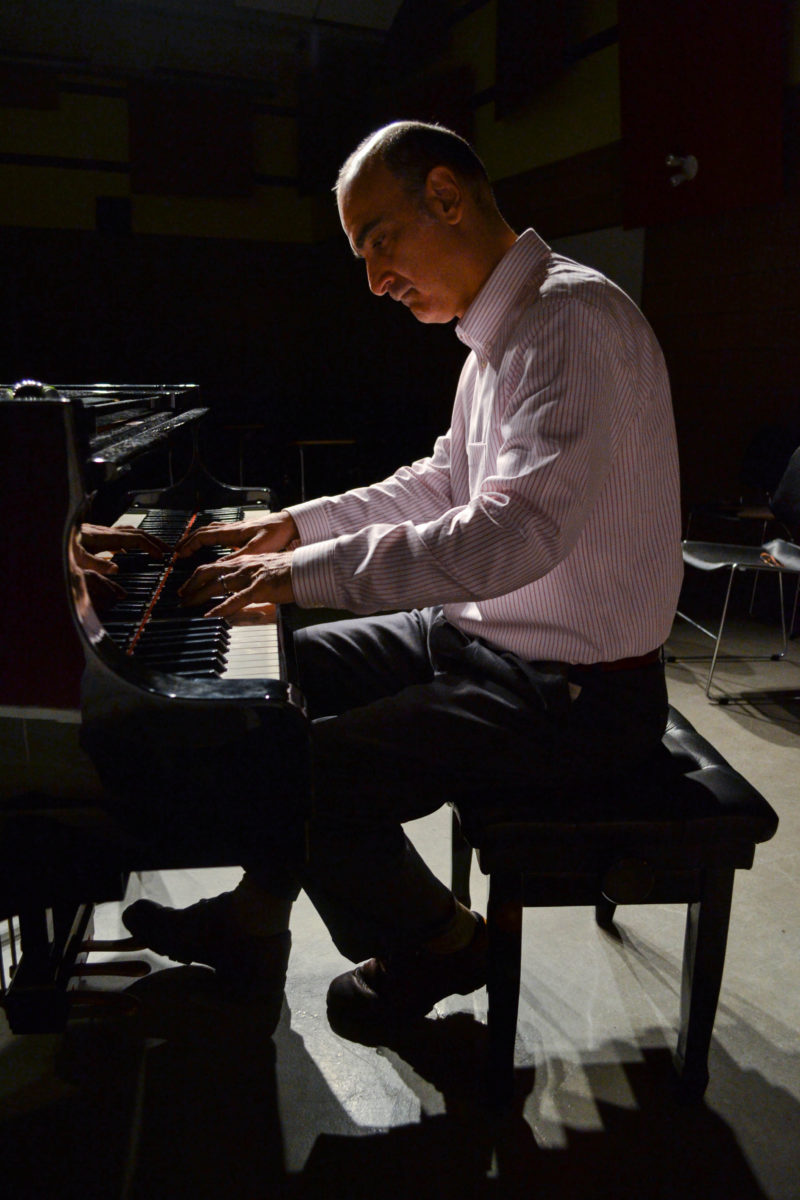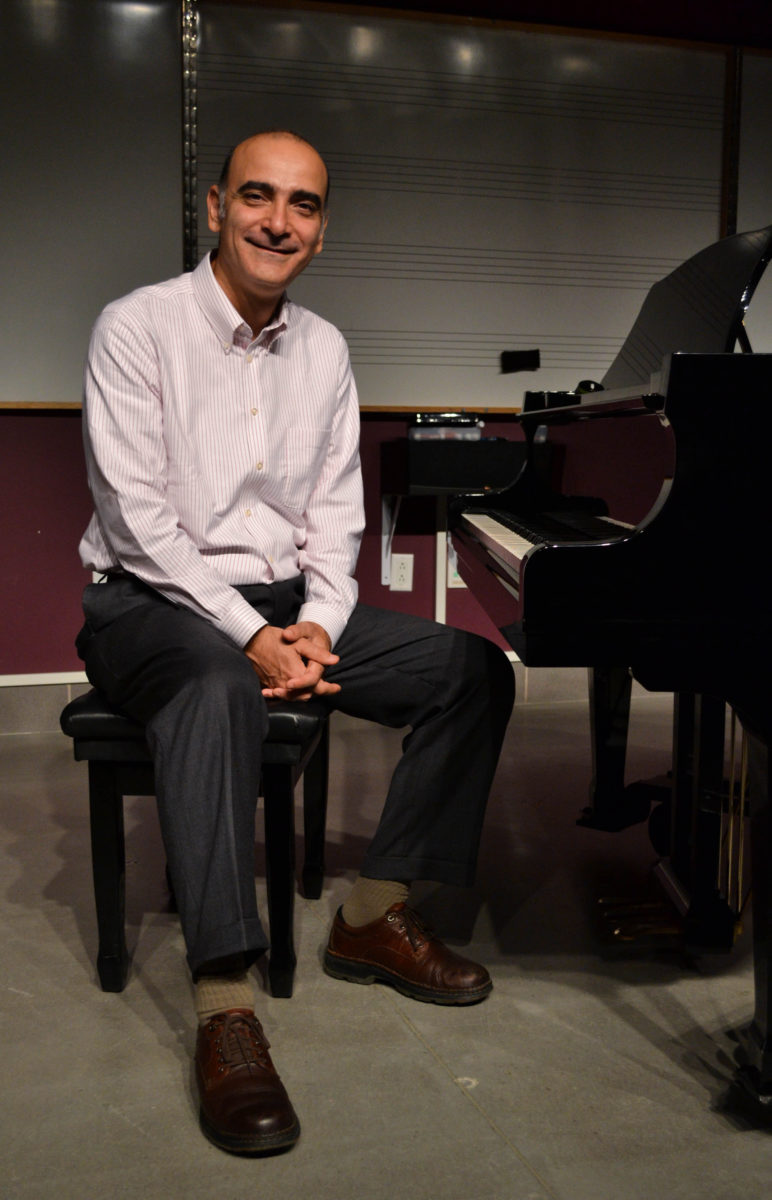
When Martin Kutnowski’s father was hit by a car and left in a coma, the doctor told Kutnowski that his cat scan looked like he didn’t have a brain left. But the St. Thomas fine arts professor found that he could communicate with his father by playing the piano. Five years later, his father is talking, reading the newspaper and writing emails.
“It’s one more proof for me of the truthfulness of the premise that everybody can learn,” he said. “This teaches me that the brain has great plasticity. If my father, who was in a coma, can learn then anyone can.”
This experience has shaped the way Kutnowski teaches music. Recently, Kutnowski won the Atlantic Universities Distinguished Teaching Award, the third St. Thomas recipient.
His mantra “given the right conditions, everybody can learn” is the basis of his teaching. In class, Kutnowski challenges his students to learn. And he often challenges himself.
“Would it be possible to teach a lecture without speaking a single word? Would it be possible to teach a topic I don’t really know very well, by learning it with the students? Could the students teach themselves?” he said. “Trying new things can be costly in many ways, but I don’t want to ever shelter myself in an ivory tower, teaching the same materials – or in the same way – year after year, as if the world were static.”
Instead, Kutnowski wants to prepare his students for the real world.
“This is why I pay attention to what’s relevant to my students, be it the Simpsons or Lady Gaga, and include these new perspectives in the conversation.”
Teaching wasn’t always a part of Kutnowski’s plan. Kutnowski ended up teaching to pay the bills and over time grew to love it.
“And now, 30 years later, I can say teaching has really shaped who I am.”
Kutnowski grew up in Buenos Aires, Argentina, taking piano lessons as a kid and learning guitar at 16. He attended a conservatory in Argentina’s capital and eventually received his masters and doctorate in music.
In 1995, Kutnowski moved to New York City to teach at the City University of New York. Ten years later, he moved to Fredericton to teach at St. Thomas.
Kutnowski thinks anything can be a liberal art, from sports to engineering to painting. If you don’t have meaning in your pursuit, then what is the point, he said.
“I think the minute we close our cubicle and we concentrate on the task at hand without doubting or questioning anything else that happens outside of the cubicle, that’s where we become divorced from liberal arts and meaning.”
He encourages his students to think about tasks and life this way.
“When you’re composing music, you could simply concentrate on the technique and just talk about this note works, this note doesn’t work and never reflect on what it means. What does it mean?”
At St. Thomas, he thinks his students arrive with a certain curiosity but he enjoys seeing them grow after being exposed to new ways of seeing the world.
“As a teacher you see your students in first year and then you see them grow and they become these very intriguing scholars or artists or teachers and they have polished views.”
He said many of his students have become music teachers, and recently one earned an award for his music on a commercial.
Beyond teaching, Kutnowski has a career composing and performing. At the end of October in Paris, a flute quartet will be playing his compositions. In December, he has a premiere in Korea.
In Kutnowski’s office at the top of Margaret McCain Hall, there is a large brown piano in one corner, and awards and pictures on the walls; the shelves are filled with books and CDs. On the floor is a guitar in its black case and next to it thick cords and a microphone stand. One of his computer screens is flipped vertically so he can compose his music. When he plays a piece, the room explodes with sound from every corner.
Kutnowski knows that there is truth in music and in the human brain. He knows this because of his father, who doctors said was barely alive but could react with a raised eyebrow to the musical notes of songs when he could not talk.
“Everybody can learn through expert guidance, encouragement and hard work,” he said. “If my father could do what he did, then there is no excuse for anybody.”

